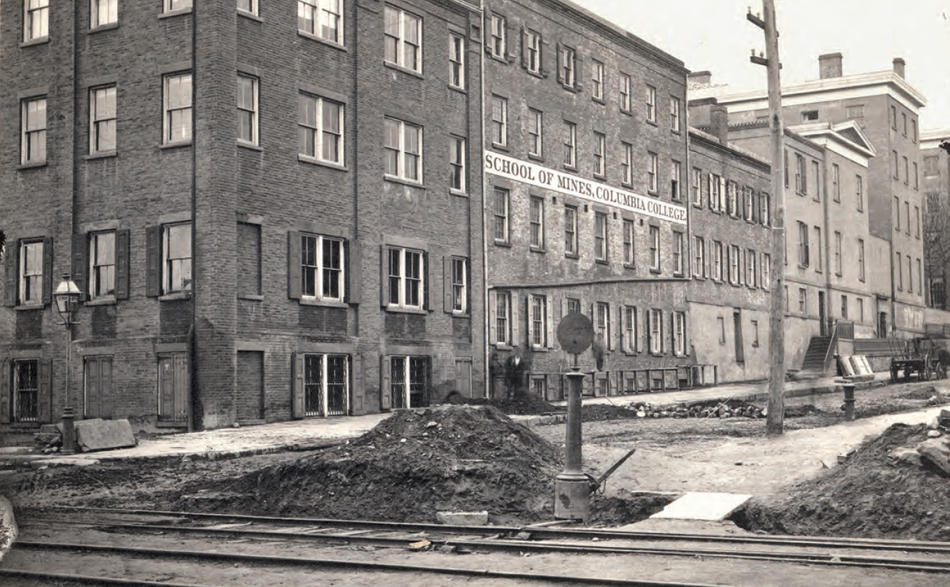“On the 15th of November next, Columbia College will open a School of Mines,” the New York Times reported in July of 1864. “This will be a novelty in our City, but its utility cannot be too strongly asserted.”
The school opened that fall in the basement of Columbia’s home on East 49th Street and Madison Avenue; it later moved into its own building (above) at 49th and what is now Park Avenue. The first semester it had twenty students and three teachers: the Paris-trained engineer Thomas Egleston, who saw a need for a school of mineralogy in the United States and convinced the Columbia trustees to take up his plan; mineralogist and Civil War brigadier general Francis L. Vinton; and the chemist Charles F. Chandler, the founding dean of the school, who remained at Columbia for forty-six years and whose contributions to Columbia, chemistry, and public health are hard to overstate.
This year, the Fu Foundation School of Engineering and Applied Science (as it came to be called) marks its sesquicentennial with a number of events, including a symposium on November 14 that will highlight faculty research, past and present, through a series of TED-like talks. Among the older research: the creation of the punch-card machine (and automatic computation) by Herman Hollerith 1890SEAS; advances in x-ray technology by Michael Pupin 1883CC, 1904HON; and the invention of FM radio by Edwin Howard Armstrong 1913SEAS. Today, the school is a leader in fields like nanotechnology, tissue engineering, and data science.
In the school’s 150 years, few figures cast as long a shadow as Chandler. As the head of the New York City health department from 1873 to 1883, Chandler led health-promoting initiatives in, among other things, indoor plumbing, vaccinations, and the regulation of gas, water, and milk. As an industrial chemist, he broke new ground in fields as diverse as sugar refining, petroleum refining, and photography. He also founded the American Chemical Society.
Chandler retired from Columbia in 1910, and was feted by six hundred chemists, engineers, and other well-wishers at the Waldorf- Astoria Hotel. There, in a speech, Columbia president Nicholas Murray Butler compared Chandler’s role in founding the engineering school with a biblical miracle.
“Back then,” said Butler, “they at least had the water to start with when they made wine out of water. But Professor Chandler made a School of Mines out of a hole in the basement.”



